Avian influenza epidemic: FDA detected avian influenza virus in milk in food stores.
Original crossbow u replies to global doctors’ organization
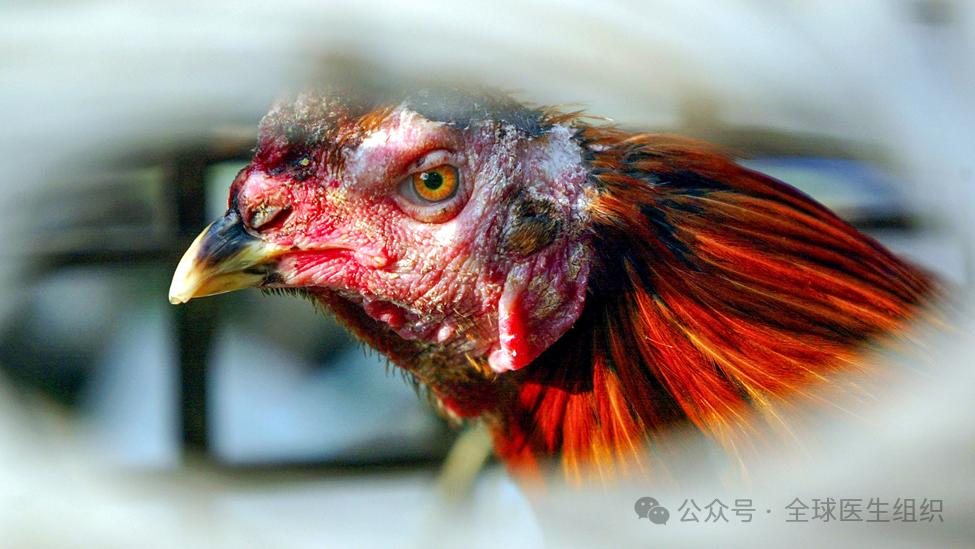
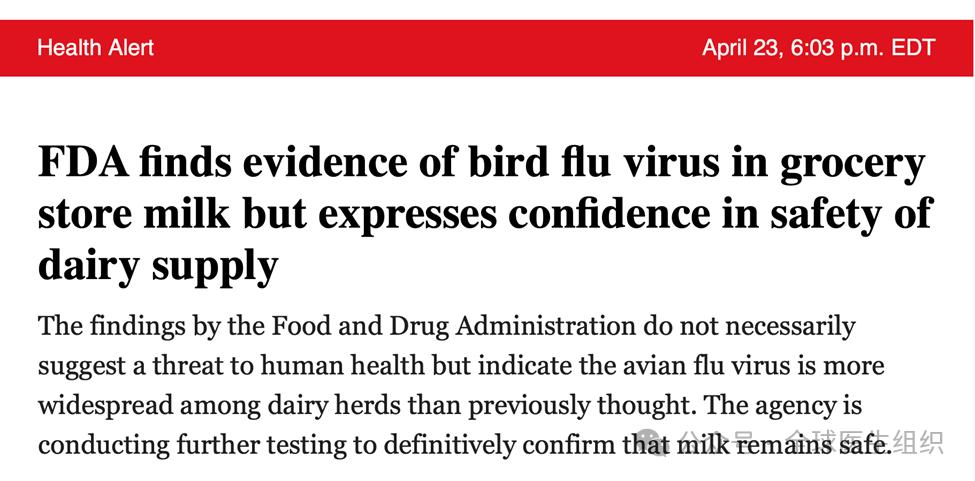
Pay attention to the latest research progress of avian influenza epidemic
Recently, a case of human infection caused by avian influenza occurred in Texas, USA, involving a dairy worker. This is the second human case of avian influenza reported in the United States. At present, the patient’s condition is mild and has recovered.
At present, there is no evidence that avian influenza virus has spread from person to person, but infection has been found in 32 dairy cows in at least 8 States. Therefore, scientists and food safety experts are worried that the discovery of avian influenza in dairy cows is likely to affect the spread and spread among dairy cows.
Avian influenza virus experts have noticed that compared with birds, the discovery of avian influenza virus in poultry and mammals is a new phenomenon, which means the variability of the virus.
According to the current report, in addition to birds, many mammals, such as minks, skunks and raccoons, have also reported cases of bird flu.
Experts speculate that it may be accidental, that is, mammals may be infected by eating dead birds or touching bird droppings, but the virus does not spread between their groups.
Scientists believe that vaccination is an effective means to prevent and control avian influenza in poultry, but for large mammals such as cows, the vaccine effect is limited.
At present, scientists are speeding up the research on genetically engineered animals that can resist avian influenza virus and developing more effective vaccines to deal with the potential avian influenza virus pandemic.
In a word, through the experience and lessons of COVID-19 epidemic, active prevention is the key to prevent and control this potential global health threat.
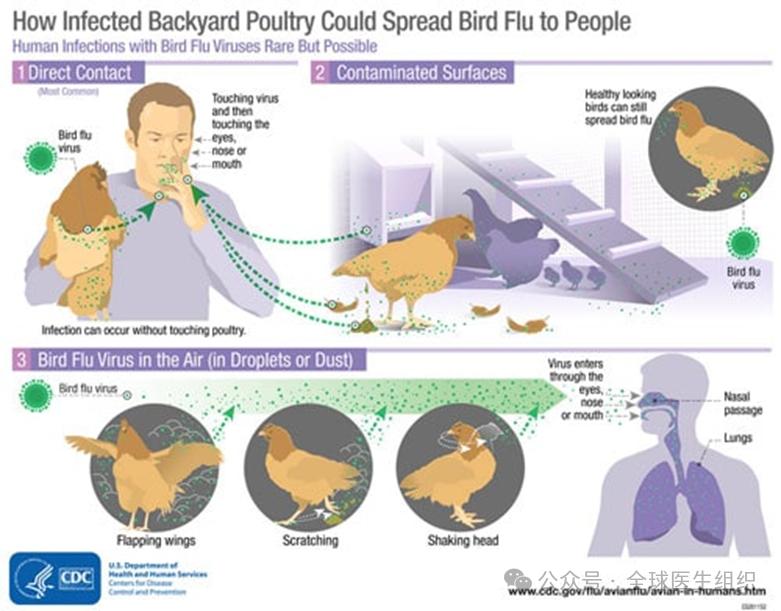
According to the official report of CDC, the symptoms of avian influenza virus infection in humans are not specific, ranging from mild eye infection to severe respiratory symptoms, and also include common symptoms such as fever, cough, sore throat and dyspnea. Severe cases may require hospitalization.
In order to accurately diagnose and identify whether the patient is infected with avian influenza virus, it should be suggested to collect samples from the patient’s respiratory tract for laboratory pathogen detection.

According to the latest report of FDA, in a large-scale study, it was found that pasteurized milk contained avian influenza virus particles (the virus itself has been inactivated), but it did not seem to pose a risk to human health.
FDA epidemic monitor said that the pasteurization process has been providing good health and safety guarantee for public health for hundreds of years, and it is believed that the current avian influenza virus will not pose a health risk to consumers.
"Even if viruses are detected in raw milk, pasteurization can usually eliminate pathogens to a level that does not pose a risk to consumers’ health."
FDA officials added that "in addition to evaluating various types of dairy products (whole milk, cream), more tests and analysis are being conducted on milk on the shelves of stores across the United States".
However, avian influenza virus has been detected in raw milk before, and health authorities have been advising people not to eat raw milk.
April 24th: The latest monitoring by the US Department of Agriculture (USDA) shows that there are cases of avian influenza virus infecting cows in nine states:
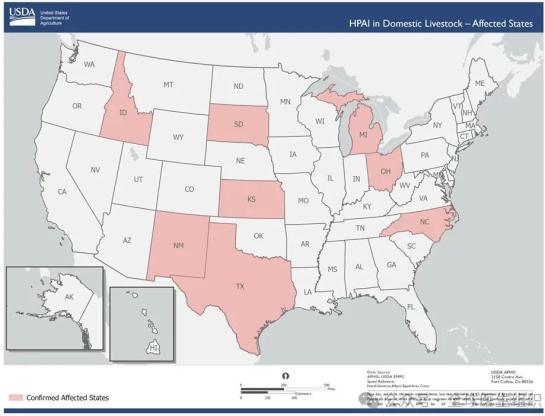
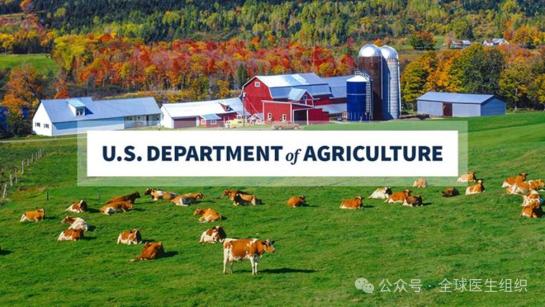
Related report information:

Original title: Avian Influenza Epidemic: FDA Detects Avian Influenza Virus in Food Store Milk.
Read the original text